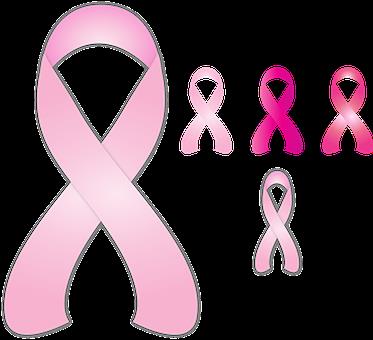There are different approaches to the treatment of cancer. Certain factors, like the type of cancer and the patient’s medical history, are considered when choosing a treatment type. The benefits and disadvantages of available treatments are always discussed with the patient before treatment.
Most of these treatments come with their adverse effects. Learning about these effects is very important in choosing the ideal treatment for you as well as knowing the one to avoid.
Surgery
It is a common practice for doctors to discuss extensively with patients details of the surgery, including the benefits and dangers associated with it. Possible post-surgery issues range from mild ones like blood clots and fatigue to life-threatening ones like damage to organs.
Possible side effects of cancer surgery are
- Bleeding
Loss of blood is part of most surgical operations, the blood is little in most cases, and doctors do make plans for transfusion in cases where the excessive loss of blood is expected.
- Drug reaction
Some patients react to the anesthesia used during surgery, and this reaction may cause breathing or blood pressure problems. Doctors are always on the lookout for irregular pulses and breathing issues during surgery.
- Blood clots
Laying on the bed for long can cause blood clots on the leg, these clots could be dangerous if allowed to travel to vital organs.
- Pain
It is normal to feel pain after surgery, size of the cut, and location of the site on the body determine the degree of the pain. Pain relievers recommended vary from over the counter drugs like acetaminophen to prescription drugs like morphine or codeine.
- Infection
Even though doctors minimize the chances of infections by sterilizing surgical equipment and surroundings, it is still possible to have infections especially on the site of operation, usually, the use of antibiotics help with curing post-surgery infections.
- Organ damage
It is rare but possible to suffer organ damage during a surgery process, and organ damage may occur if the surgery site is close to the organ or patients have problem with the organs before.
- Sexually related problems
A possible side effect of cancer surgery is reduced libido or lack of sex drive in both men and women. Men who undergo radical prostatectomy, the removal of the prostate may suffer incontinence or become impotent.
Chemotherapy
Chemotherapy is used in many cancer treatments. Chemotherapy treats cancer by killing the harmful cancerous cells, in trying to do this, it is inevitable to kill healthy body cells along the way, and destruction of these cells can lead to some side effects. Most of these effects heal or improve with time, while few could be life-threatening or cause permanent disability.
The following side effects tend to improve with time.
- Fatigue
- Pain
- Soreness
- Nausea
- Constipation
- Easy bruising
- Bleeding
- Diarrhea
While these side effects could be long-lasting or fatal, leading to other conditions like:
- Fertility and reproductive problems
Chemo can cause infertility and low sexual drive in both men and women.
- Nerve damage
Chemo could cause nerve issues, including posture problems like walking issues and stiff neck as well as sight and hearing impairment.
- Cognitive dysfunction
Possible post chemo problems could include thinking and memory issues as well as concentration problems, and this is commonly referred to as chemobrain in cancer society.
Radiation therapy
In radiation therapy, part of the body affected by cancer is exposed to radiation to destroy the cancer cells, this radiation could kill some healthy cells too causing different types of side effects. These side effects depend on the area affected as well as the amount of radiation exposed to. Since only the affected parts are targeted with radiation, the side effects usually affect these parts, unlike other treatments.
Side effects of radiation therapy are usually divided into 2, mainly short term and long term effects. Short term effects start a few weeks after treatment and disappear or improve with time while long term effects take a long time to manifest but may be permanent or life-threatening.
Nausea, itchy and dry skin, fatigue, hair loss, eating problem, and diarrhea are common short term effects.
Late side effects could take several months or even several years before manifesting. Examples are
- Lungs problem
Scar tissues can cause lungs problem in the long term.
- Heart problem
As in lungs problem, scar tissues may cause heart-related issues.
- Second cancer
It is known that exposure to radiation is one of many causes of cancer, while radiation may help in treating initial cancer diagnosis, it can also cause the rise of another.
Stem cells transplant
Also known as bone marrow transplant, stem cells transplants are used mostly in cancer cases that affect the blood, common cancers treated this way includes leukemia and lymphoma. It is usually combined with high dose chemotherapy or radiation therapy.
Since it involves other cancer treatment types, it is normal to develop side effects common with chemotherapy and radiotherapy. As with most cancers, there are short term effects and long term damaging or life-threatening effects.
Patients can experience the following short term effects
- Diarrhea
- Anemia
- Fatigue
- Nausea
- Infection
- Bleeding
- Skin Rashes
- Skin itching
- Blisters
- Pain
Serious lasting effects include
- Early menopause for women

- Blurry or impaired vision
- Infertility in both men and women
- Thyroid problem
- Bone damage
- Graft-versus-host disease (GVHD)
This is a condition that happens when stem cells of the donor attack healthy cells of the host. The effect of GVHD could be mild or life-threatening. It could take several months or years to treat GVHD.
- Liver damage
GVHD can cause liver damage.
- Chemotherapy could cause serious kidney damage, including kidney failure.
Kidney problem
- Lungs problem
Prior chemotherapy or radiation therapy could cause serious lungs problems.
- CNS problem
Serious central nervous system issues like loss of memory and concentration problems may occur after stem cell transplants. This could be caused by radiation therapy or GVHD.
- Another cancer
It is possible to have second cancer because of radiation or chemotherapy.
Cancer is a perilous disease, and it is difficult to treat cancer without any serious side effects.
It is essential to know the dangers associated with all types of treatments and choosing the least dangerous or most suitable for you. Young adults, for example, might want to avoid treatments that could cause infertility because they are reproducing or yet to reproduce.





